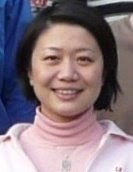Thursday, February 18, 2010
UMIC Workshop on Future Mobile Applications - Program
09:00
Welcome to UMIC Workshop on Future Mobile Applications
Yiwei Cao and Wolfgang Gräther, RWTH Aachen and Fraunhofer FIT
09:15
Mobile Device as a Smart Metering Display (with Demo)
Oleksandr Lobunets, Fraunhofer FIT
09:45
ideaPitch - A Spatial Tool for Notes (with Demo)
Nils Jeners, Fraunhofer FIT
10:15
Mobile Cloud Computing
Dejan Kovachev, RWTH Aachen
10:40
Coffee Break
11:00
Mobile Informal Learning
Christian Glahn and Dirk Börner, Open University Netherlands
11:30
Augmented Reality for Mobile Learning: information feeds
versus designing scenarios
Stefaan Ternier, Open University Netherlands
12:00
Resource Annotation and Delivery for
Mobile Augmented Reality Services
Martin Memmel, Deutsches Forschungszentrum für Künstliche Intelligenz
12:30
Lunch Break
13:30
Open API Platform (with Demo)
Johannes Willig, Ericsson Eurolab
14:00
Service Composition (with Demo)
Konstantinos Vandikas, Ericsson Eurolab
14:30
Virtual Campfire iNMV – Storytelling on the iPhone (with Demo)
Yiwei Cao and Xi Chen, RWTH Aachen
15:00
iBSCW - BSCW applications on the iPhone (with Demo)
Wolfgang Gräther, Fraunhofer FIT
15:30
Coffee Break & Demos
16:15
Discovery and Interaction in Ubiquitous Environments
Marc Jentsch and René Reiners, Fraunhofer FIT
16:45
Supporting Mobile Maintenance in Construction Industry
Anne-Kathrin Braun, Fraunhofer FIT
17:15
Discussion and Further Steps
Ralf Klamma, RWTH Aachen
Friday, February 12, 2010
UMIC Workshop on Future Mobile Applications - Call For Presentation/Demo/Participation


 UMIC (Ultra Highspeed Mobile Information and Communication) is a research cluster established under the German Federal and State Government Excellence Initiative, focusing on the research and realization of future mobile applications and systems through interdisciplinary and academic-industrial collaborations.
UMIC (Ultra Highspeed Mobile Information and Communication) is a research cluster established under the German Federal and State Government Excellence Initiative, focusing on the research and realization of future mobile applications and systems through interdisciplinary and academic-industrial collaborations.
The one-day UMIC workshop aims to bring together researchers and PhD students involved in the rapidly increasing field of mobile applications. The workshop provides a forum for academics and practitioners to share knowledge and experience, explore future scenarios, directions and application domains of innovative research, and discuss the challenges and solutions for developing new mobile systems and applications. The workshop also aims at establishing a research community across universities and research institutions for further knowledge sharing and long-term collaboration.
The equipment of mobile phones with embedded camera, GPS, and other sensors greatly influenced the application area and the development of mobile applications. The benefits from the emerging mobile technologies include enhanced flexibility and mobility for end-users, improved productivity for learning, working, and common life, increased social interactivities through personal mobile devices and the availability of context information (such as location and time). However, different considerations need to be addressed in developing applications for mobile devices, like the demand for more resources for real-time context information processing, higher interactivity for better user and community experiences, and improved usability and sociability.
Promising solutions or methodologies are mobile cloud computing, mobile social software and augmented realities. Mobile cloud computing unlocks computing resources and data storage from devices and opens new classes of applications that didn’t seem to be possible previously. Over the past years social software has seen a huge explosion in usage and is now taking its first significant steps towards mobility. The interplay between mobile technologies, sensor/contextual data, cloud services and social computing generates new and exciting research questions on new challenges, utilization of context, location and other sensor data, innovative next generational mobile applications.
The workshop topics include, but are not limited to:
- Scenarios and requirement engineering for next generation mobile applications
- Software architectures for mobile systems
- Mobile social software and mobile Web 2.0
- Data management for mobile applications
- Mobile multimedia
- Mobile Web services
- Mobile learning
- Mobile gaming and other forms for entertaining
- Mobile applications for sensor networks
- Context-aware, location-based and mobile sensing applications
- Augmented Reality
- Mobile cloud computing programming model
- Mobile application development standards e.g. Open Mobile Alliance
- Mobile usability
- Quality of service for mobile community information systems
- Innovative cross-platform mobile applications (Android, iPhone, iPad, and Symbian etc.)
- Security and privacy in mobile systems
- Native applications vs. mobile Web applications - HTML5
- Smart object applications (RFID and QRcodes etc.)
Workshop presentations and demos:
- Presentation: 30 minutes
- Presentation + demo: 45 minutes
- An additional demo session will take place for all demos
Workshop Organization Teams:
Links:http://dbis.rwth-aachen.de/cms/events/umic-workshop-on-future-mobile-applications




